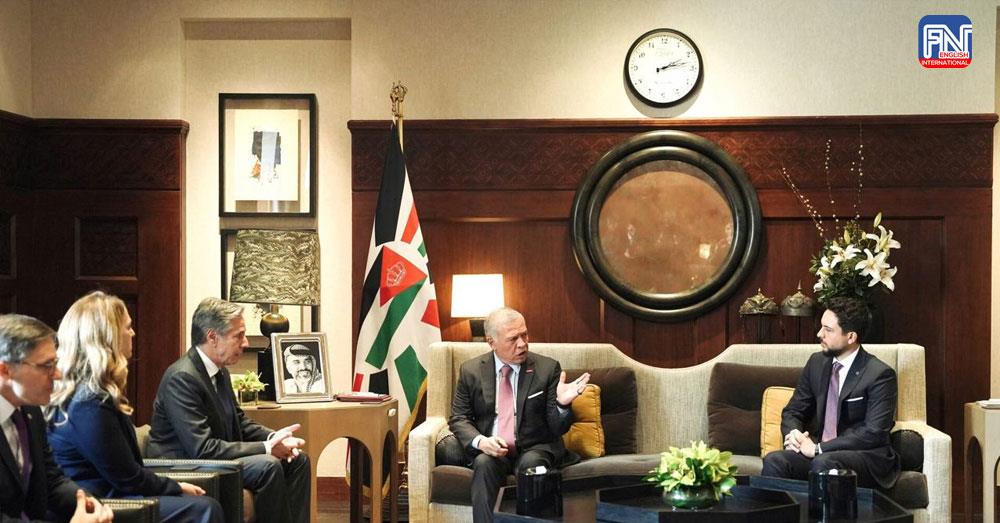AMMAN, Apr. 30 (Reuters) - U.S. Secretary of State Antony Blinken said on Tuesday he would discuss with Prime Minister Benjamin Netanyahu measures that Israel still needs to take to increase the flow of aid into Gaza during his planned talks in the country on Wednesday.
Blinken spoke to reporters at a warehouse of the Jordan Hashemite Charity Organization where aid shipments from U.S.-based charities are gathered. While there are some improvements in the humanitarian aid situation in the densely populated enclave, he said, much more needs to be done to ensure assistance reaches people in a sustained manner.
"I'm now able to go to Israel tomorrow and go over with the Israeli government the things that still need to be done if the test is going to be met of making sure that people have what they need," Blinken said.
"And I'll be doing that tomorrow directly with Prime Minister Netanyahu and other members of the Israeli government," he said.
Blinken's check-in with Netanyahu on aid will take place about a month after U.S. President Joe Biden issued a stark warning to Netanyahu, saying Washington’s policy could shift if Israel fails to take steps to address civilian harm, humanitarian suffering, and the safety of aid workers.
Netanyahu on Tuesday vowed to go ahead with a military operation in the southern Gaza city of Rafah despite international concern over the fate of more than 1 million Palestinians sheltering there.
Blinken said Washington had made its views on Rafah clear - referring to warnings that an operation should not go ahead without a credible plan to avoid civilian harm. The State Department later said it had still not seen such a plan.
A spiraling humanitarian crisis has prompted calls from Israel's Western and Arab partners to do more to facilitate the entry of aid to Gaza, where most people are homeless, many face famine, disease is widespread, and where much civilian infrastructure lies in ruins.
The top U.S. diplomat is on a tour of the Middle East, his seventh since the region plunged into conflict on Oct. 7 when Palestinian Hamas militants attacked Israel, killing 1,200 people and abducting 253 others, according to Israeli tallies.
In response, Israel has launched a relentless assault on Gaza, killing more than 34,000 Palestinians, local health authorities say, in a bombardment that has reduced the enclave to a wasteland. More than one million people face famine, the United Nations has said, after six months of war.
U.N. Secretary-General Antonio Guterres said on Tuesday there has been incremental progress toward averting "an entirely preventable, human-made famine" in the northern Gaza Strip, but called on Israel to do more.
The first shipments of aid directly from Jordan to northern Gaza's newly opened Erez crossing will leave on Tuesday, goods are also arriving via the port of Ashdod, and a new maritime corridor will be ready in about a week, Blinken said.
"But more still needs to be done," Blinken said. "We still have to have a deconfliction mechanism that's effective and works - that's a work in progress," Blinken added.
He said there should also be a clear list of items needed in Gaza to avoid "arbitrary denials" - a reference to a process of rigorous inspections of aid shipments that has seen some trucks stranded at border crossings.

Photo from Reuters